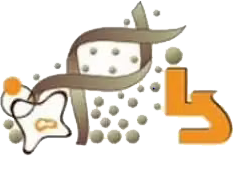Mandate
The defined mandate of ILS is to foster investigations, both basic and translational, in the following areas: Infectious Disease Biology, Cancer Biology, Plant and Environmental Biotechnology, Tribal Health and Nutrition. Towards fulfilling these goals, the Institute works towards the upliftment of the human society and to generate skilled human resources for future India.
Campus
The two campuses of ILS are located in Bhubaneswar. The total land utilized by the ILS is either owned by it (08 acres) or leased (0.12 acres)
Research Focus
The following are the major thematic areas of focus: i) Cancer Biology, ii) Infectious Diseases, iii) Plant Biotechnology, iv) Environmental Biotechnology, v) Tribal Health and Nutrition, vi) Translating Research leads for Product development, vii) Technology application in rural areas, viii) Generating resources and platforms.
In all these programs, partnerships and collaborations at national and international levels are forged to strengthen the Institute's ongoing research activities.
Human Resource
The institute currently has 25 scientists and around 180 Research Fellows engaged in high-quality research, supported by 10 technical staff and 15 administrative staff.
Key Scientific Achievements
Major achievements in the last 5 years (2017-22) are as follows:
Publications
PhD Degrees Awarded
Postdocs and research fellows
Patents awarded
Technologies commercialized
- Tribal Health and Nutrition is a flagship program that uses multi-omics approach to understand the diversity and innate immunity of the tribal population for contributing to better health and nutritional outcomes. Developing probiotics associated with the traditional food of the communities is used in product development.
- In cancer biology research, the focus has been on deciphering and understanding the mechanism of gene regulation governing the onset, progression, and migration of the disease. It has also focused on targeted drug delivery approaches using nano-particle-based small molecules and phytochemicals as possible treatment options.
- ILS has been working on major viral diseases such as COVID-19, Chikungunya and Dengue, Malaria, and other bacterial infections. The approach has been to understand the epidemiology, host, and pathogen diversity, and identification of potential small molecules and phytochemicals for the management of diseases are being attempted.
- The plant and environment biotechnology group undertake studies on understanding diversity and species relationships among mangroves and underutilized species from locations inhabited by tribal population, generating genomic resources for identification and characterization of abiotic stress tolerant and nutritionally important.
- Establishment of a Bioincubator to create an enabling ecosystem for the development of products arising out of research leads and their subsequent translation.
- The scientists at ILS have received key awards and recognition for their scientific contributions, such as the NASI-Reliance Industries Platinum Jubilee Award, Merck Young Scientist Award, DBT National Bioscience Award, SERB-STAR Award, EMBO Global Investigator Fellowship, Prof. MGK Menon Lecture Award (NASI), Biotech Product and Process Development and Commercialization Award, etc. Several faculty members are also elected Fellows and life members of prestigious national and international academies and societies.
- The institute has organized outreach and public engagement events such as its Open Day Science Exposition, National Science Day celebrations, webinar series on entrepreneurship, program on Tribal Health and Nutrition, Teachers Training Programs, etc.
